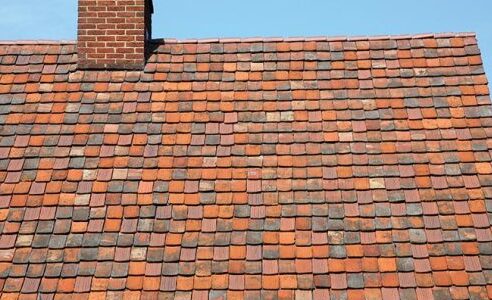
When it comes to choosing the right roof for your building, cost-effectiveness is a critical factor to consider. While traditional pitched roofs have long been the norm, flat roofs have gained popularity due to their sleek design and versatility. Always make certain to contact an expert roofer to help in choosing the best suitable roofing system for your building. In this article, we will delve into the cost-effectiveness of a flat roof versus a traditional roof, examining the various factors that make flat roofs a smart investment for the long run.
One of the key advantages of flat roofs is their lower installation and labor costs compared to traditional roofs. Flat roofs are simpler in design and require fewer materials and less labor-intensive installation processes. The reduced complexity translates into lower costs, making flat roofs an attractive option for those seeking a cost-effective roofing solution.
When it comes to cost-effectiveness, durability and longevity are crucial factors to consider. Flat roofs have a reputation for being highly durable and long-lasting. With proper maintenance and regular inspections, a well-constructed flat roof can last for several decades. Traditional roofs, on the other hand, may require more frequent repairs and replacements due to their complex design and the wear and tear caused by weather conditions.
Energy efficiency is a significant consideration for any building, and flat roofs offer advantages in this area as well. The design of flat roofs allows for the installation of insulation materials, which can significantly reduce heat transfer and minimize energy consumption for heating and cooling. Flat roofs provide a larger surface area for solar panels or green roof installations, further enhancing energy efficiency and potentially lowering utility bills.
Maintaining and accessing a roof is an important aspect of cost-effectiveness. Flat roofs are easier to access and maintain compared to traditional roofs with steep slopes. Routine inspections, cleaning, and minor repairs can be carried out more efficiently and at a lower cost. Additionally, the flat surface of a flat roof makes it easier to install rooftop equipment, such as HVAC systems or solar panels, reducing the need for additional infrastructure.
Flat roofs offer versatility and future adaptability, making them a cost-effective choice in the long term. The horizontal surface of a flat roof provides additional usable space that can be utilized for various purposes, such as rooftop gardens, outdoor seating areas, or even additional building expansions.
Conclusion
Whether you're considering a new construction project or a roof replacement, exploring the benefits of a flat roof can lead to a smart investment that not only saves you money but also adds value to your building.
We have expert roofers at Downtown Brooklyn Roofing 183 Bridge St Brooklyn, NY 11201 (718) 690-9422 https://downtownbrooklynroofing.com that will help you with your decision making so contact us today!
